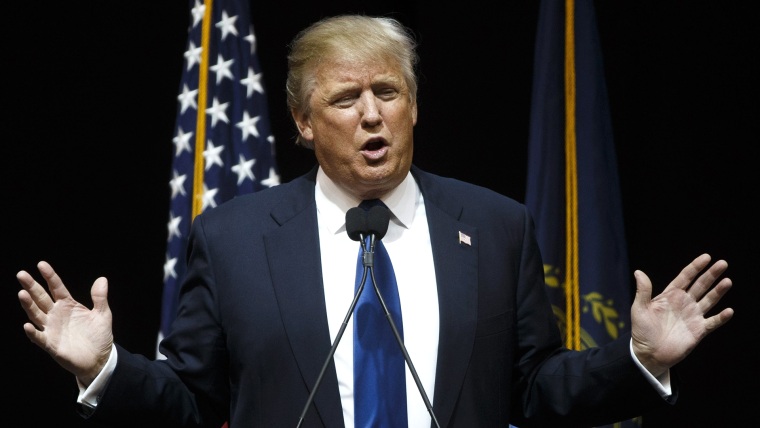Now that Donald Trump has won three primaries by convincing margins, there are at least some cracks in the wall of opposition to his candidacy within some segments of the Republican Party establishment.
As Trump racks up delegates and makes it more difficult for the four remaining challengers to catch him in the race for delegates, some major GOP donors are questioning the purpose and efficacy of efforts to derail Trump's candidacy.
RELATED: Mitt Romney warns of possible 'bombshell' in Trump's taxes
Bob Grand, managing partner of Barnes & Thornburg in Indianapolis, was a financial supporter and bundler for former Florida Gov. Jeb Bush. He hasn't yet decided if he's going to throw his support behind Sen. Marco Rubio or another candidate with Bush out of the race. What Grand won't do, however, is fund efforts to take down Trump.
The influential establishment donor who raised more than $1 million for Mitt Romney in 2012, believes that Trump is better than the Democratic alternative.
"It might be interesting to see what (Trump) does" if he does become the party's nominee, Grand said.
Another longtime Republican donor, Fred Malek, an adviser to four Republican presidents, all but dismissed efforts to try and stop Trump at this point. He noted there is no central organization for anti-Trump donors to rally around and that it would be a bad idea even if there were.
"If you did that I think there'd be deep-seated resentment at a group of wealthy donors telling people what to do," Malek said in an interview Tuesday.
And Malek noted that time is running out. Two dozen states vote in the next three weeks.
Another element is feeding the anti-Trump fissures: he's gained support from the Republican political class.
Eight months after Trump launched his candidacy, he won his first endorsement from an elected member of Congress Wednesday from Rep. Chris Collins of New York. And shortly after that, he received another, from California Rep. Duncan Hunter.
Until now, the bombastic billionaire had been locked out of establishment circles. While he won the support of B-list celebrities, the Washington corridors mostly shunned his candidacy.
Collins, a moderate Republican who represents Western New York, cares about jobs and trade, two issues critical to his blue collar district. He said Trump will "restore the American dream for generations to come."
Was he nervous about being the first to support Trump when the party establishment has been dismissive of and frustrated with the boisterous real estate mogul?
Not at all.
"I've gotten several high fives on the House floor. I've gotten some fist bumps," he told NBC News.
RELATED: Inside the mind of a Trump supporter
Downright opposition to Trump within the Republican Party appears to be softening as efforts to take-down Trump are few and in need of cash.
Club for Growth, which is considered an anti-establishment organization, just purchased a $1 million advertising buy in two Super Tuesday states - Arkansas and Oklahoma - to persuade voters that Trump is not a conservative.
Doug Sachteben, spokesman for Club for Growth, said that Trump's poll numbers declined in Iowa and South Carolina after their attack ad campaign against Trump.
"We do believe that a sustained effort of exposing Trump on economic issues does make a difference," Sachtleben said.
Another super PAC, Our Principles PAC, has been created to dump Trump. It has spent $3.5 million in Iowa and South Carolina highlighting Trump's "convenient conservatism."
While it may sound like a lot of money. It's pocket change compared to the amount being spent.
Outside groups have spent $176 million in the Republican primary so far. A minuscule $4 million has spent attacking Trump, according to SMG Delta.
The people who could make the biggest impact is probably Charles and David Koch, wealthy billionaire conservative activists who lead a donor network that could spend close to $400 million in 2016 on political and policy activity. While they dislike Trump and have considered implementing an effort to derail him, there are few signs that they will act.
A senior official for the Koch Brothers' central organization Freedom Partners said the group is focusing on messaging, research, data capabilities and implementing a ground game for the general election.
"We are going to continue to watch the primary," the official said.
In a memo released Tuesday by Our Principles PAC, the choice is clear: "If all of us join forces in a concerted effort to expose (Trump's) record and his rhetoric, it is possible to stop him. If not, we have the nominee we deserve."
This story originally appeared on NBCNews.com.
